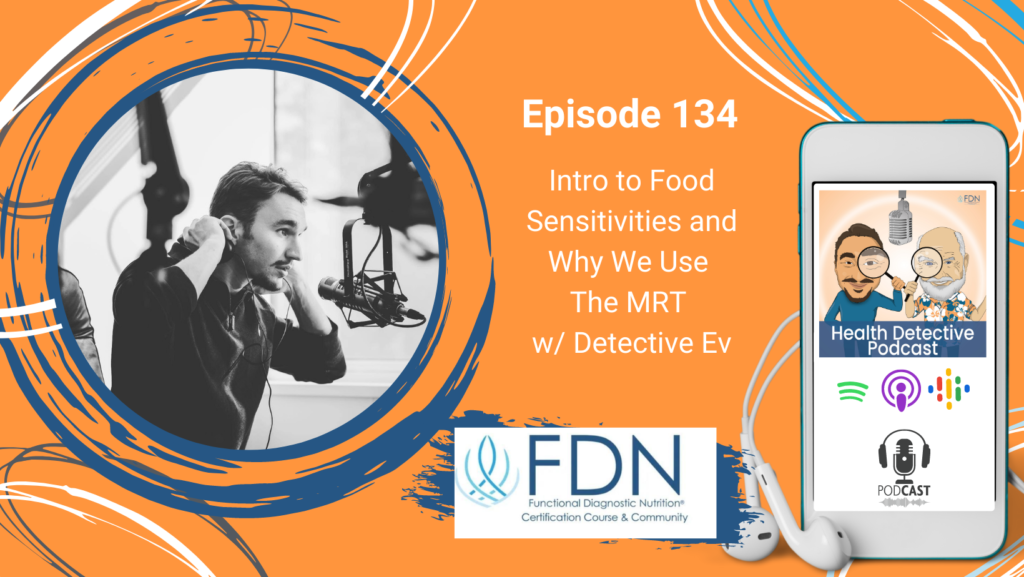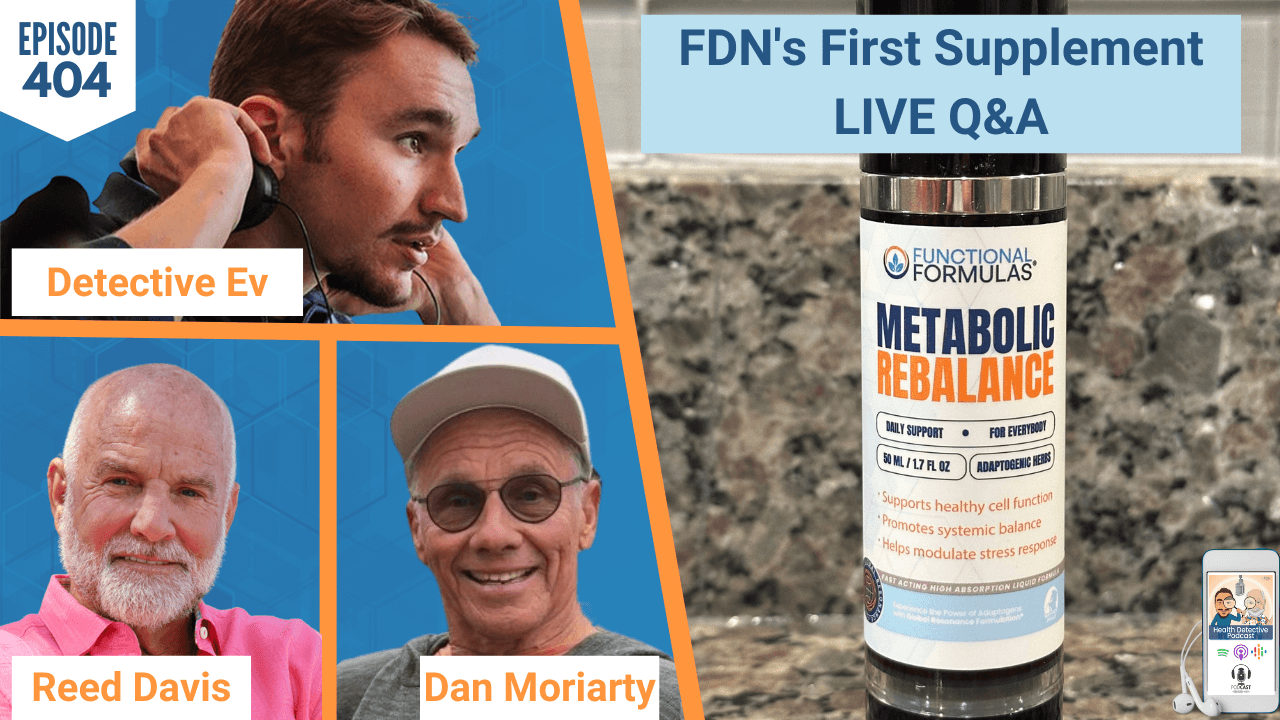Introduction
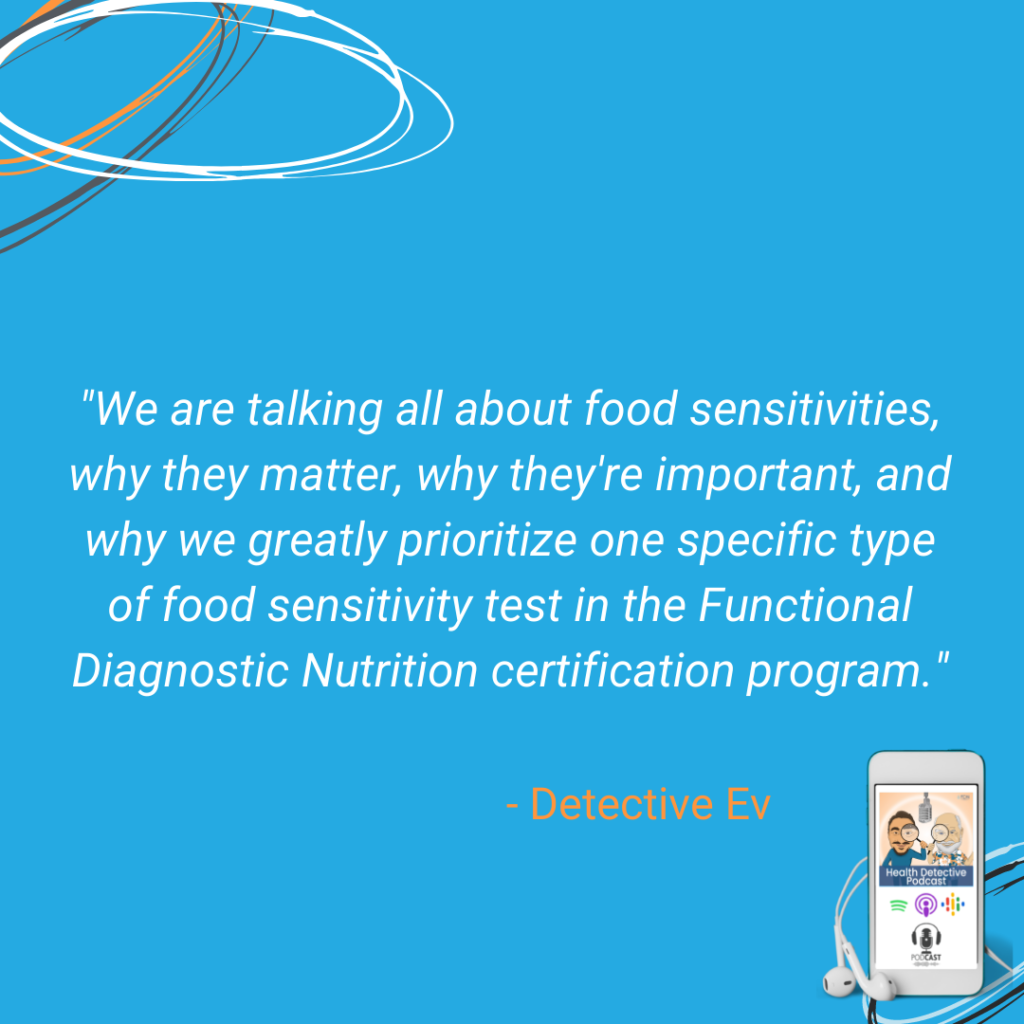
[00:00:00] Detective Ev: Hello, my friends. Welcome back to another episode of the Health Detective Podcast by Functional Diagnostic Nutrition. My name is Evan Transue, AKA Detective Ev. I will be your host for today’s show. We are talking all about food sensitivities, why they matter, why they’re important, and why we greatly prioritize one specific type of food sensitivity test in the Functional Diagnostic Nutrition certification program.
It is a test that unfortunately at this time is only available in the USA and Canada. I say, unfortunately, because we do have practitioners all over the world. It’s in over 50 countries at this point, but still to this day, from my knowledge, the number one country is definitely the USA. Right behind them is Canada.
Thankfully, most of the people listening to this will be able to have access to this specific test if they become a practitioner. Even if you don’t have access to this test, it’s not that we leave you hanging. We still show you how to use the best technology for your respective country and how you can use those results properly, because they’re not going to be a hundred percent perfect.
Mildest of Food Sensitivities – Food Intolerance
We need to train practitioners to actually know when and how to use these results for their clients’ protocol. As a little introduction, if you’re unfamiliar with what these things actually are, “things” being food sensitivities. Food sensitivities are different than intolerances and allergies and we really need to learn to specify that difference with clients, with friends, with family members and even in our own space. Sometimes these things get a bit confused.
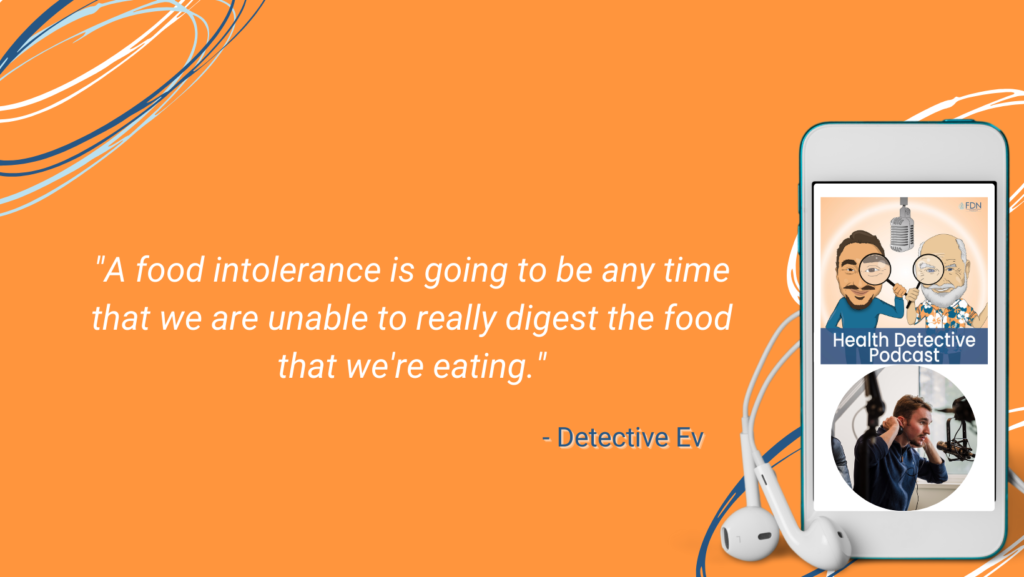
So, let’s start out with what, generally speaking, is the most mild one, a food intolerance. A food intolerance is going to be any time that we are unable to really digest the food that we’re eating. This is something that might cause an upset stomach. It might be something that every time you eat it, you’re like, oh my goodness, I got to run to the bathroom.
A lactose intolerance in a sense could be an example of this. When you have a lactose intolerance, it is because your body is not producing enough of the enzyme lactase. You’re no longer able to break down the sugar lactose. You now have an intolerance. However, this does not imply, although it could mean this, but it does not imply an automatic immune response as a result of that intolerance. An immune response of some sort is going to be required for a sensitivity or an allergy.
Different Immune Responses to Food Sensitivities And/Or Allergies
It is different types of immune responses that leads to either of those things. But nonetheless, it is an immune response when someone does not have the ability to break down, in this example, lactose because they lack the enzyme lactase. That’s a lot of lack. I apologize. They have an intolerance. They do not automatically have an immune response to the fact that their body cannot break this down.
When you can’t break something down properly, yes, that could lead to pain, that could lead to diarrhea, that could lead to constipation. It could lead to, in extreme cases, kind of a GERD type reaction, an acid reflux type reaction. A lot of different symptoms can happen as a result of intolerance, but that’s a transient experience. Nothing happened to your body immunologically and it will be over very shortly.
When we start talking about sensitivities or allergies though, it’s a bit of a different game. Not to get too confusing here or too in-depth, this is all stuff that one could learn in the FDN course. But you could have an intolerance to a food and also have a sensitivity and/or allergy.

Again, not to get too confusing here, but all of these things are not mutually exclusive. You could have all of them at the same time, in a sense. Let’s break down sensitivity and allergy so there’s a bit more clarity on that. When we’re talking about a sensitivity, this is going to be something that is really, for today’s sake, anything that’s an immune response that is not IgE.
Most Extreme Food Sensitivities Response – Allergy
A sensitivity is going to be an immune response to a food that is anything that is not IgE. What is IgE? IgE stands for immunoglobulin E. This is a certain type of antibody that the body produces in response to a food or trigger when it has an allergic reaction to it.
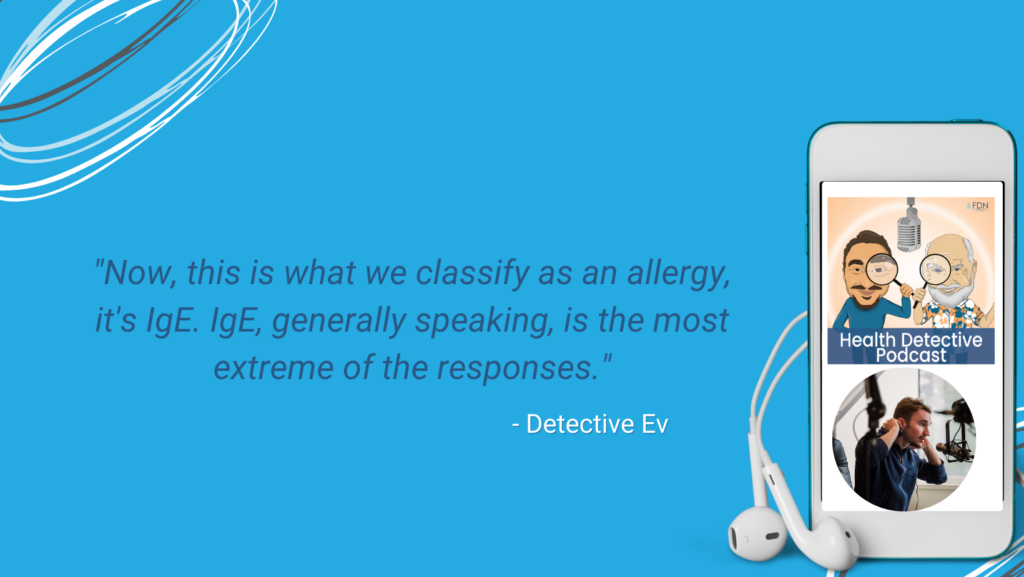
Now, this is what we classify as an allergy, it’s IgE. IgE, generally speaking, is the most extreme of the responses. This isn’t going to always be true, but more often than not, you can bet that if someone’s having severe symptoms that are more immediate, yes, we’re probably dealing with a legitimate allergy. It’ll always be the most extreme of the extreme.
What I mean by that is someone who is going through anaphylaxis, someone who is having that closing of their throat to the point of it really being dangerous. Or if you remember back in elementary school or middle school, those kids that might’ve gotten separated for the peanut table or whatever. That’s a genuine allergy. That is something that could potentially kill someone.
A food sensitivity is not going to kill you directly. I mean, I guess over many, many, many years, it could kill you indirectly from damaging your body. But that’s not really a common thing at all and I don’t think most people would word it in that way.
An allergy though, at its worst, could absolutely kill that person very quickly. This is going to be the same kind of thing that happens if someone is allergic to an animal or some other type of substance. It doesn’t just have to be food. We are having this IgE response – immunoglobulin E response – to the potential antigen that’s coming in our body.
Food Sensitivities Are Not IgE
Potential antigen, just to be clear, means a food protein or a substance or the cat or the dog (well the hair particles, I guess it’s usually from that cat or the dog that’s going to release that stuff.), we’re reacting directly to that happening. IgE gets released depending on the severity, the amount of the particular person that it’s being released in that could have a varying amount of symptoms as well.
At the most mild sense for an allergy, you could be dealing with someone who gets some hives. I’m not lessening hives, but certainly that’s not anaphylaxis. Again, at the most extreme end, this is someone who could have a potentially fatal response when they react with IgE. Got to be careful with that one.

Now, I said food sensitivities are basically anything that’s not IgE. When you really understand this, you’ll understand how brilliant the technology is behind the test that we use. Just to be clear, this isn’t our test that we made up, it’s another brand that we choose to use. I’m just hyping them up. It’s not like we get a commission here or something like that, that’s for sure.
But the technology that they have, when you really understand sensitivities, is brilliant. Sensitivities could be IgG, (which every Ig I’m about to say is immunoglobulin and then the letter), IgG, IgA IgM. There’s a lot of immunoglobulins out there that we’ve identified, but there’s also probably hundreds, if not thousands of other ways that the body can have an immune response.
Important to Test for IgE and for IgG
Remember a food allergy test, if you ever have gone to someone who does those types of tests, there’s multiple ways to do it. A common way to get an allergy test is by getting that skin prick thing on your back. They’ll see how it reacted based on what they put on your back. If you’ve ever had that, that could be the reason why or it could have been an allergy test.
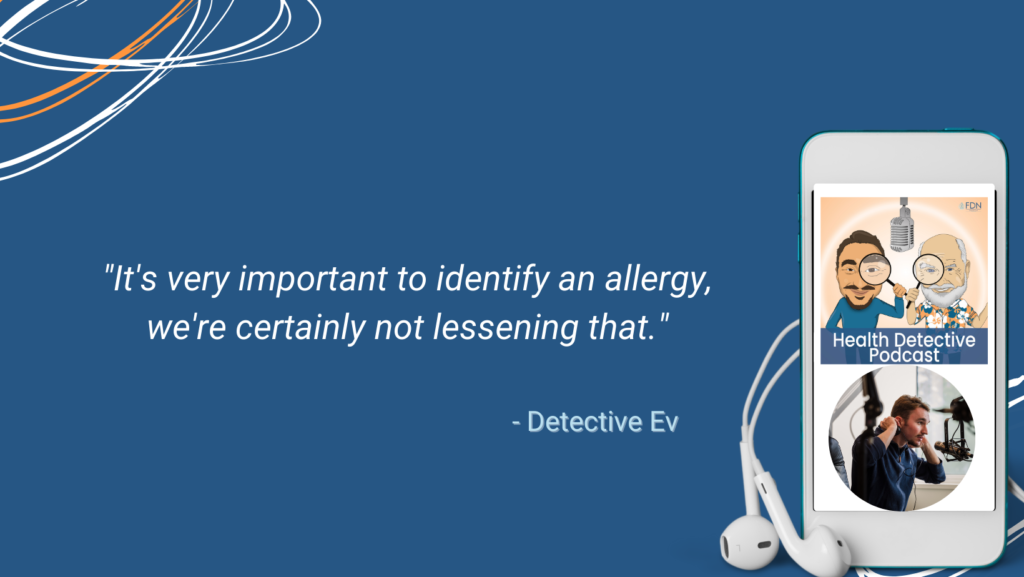
But the sensitivities could be hundreds if not thousands of things. It’s very important to identify an allergy, we’re certainly not lessening that. But we can only test for so many things at once. I mean, you can go get an IgG test right now. If you ever heard of the Elisa, E L I S A, that is a test that was on the market for, relatively speaking, a while now. It’s something that tests for IgG.
Once again, this is a good thing. It’s not a bad thing. IgG is important to test for as well. When we have an IgG response, it’s a little trickier though. It’s probably, in a sense, even more important to test for the IgG. It’s going to be less accurate, like clinically accurate. You’re not going to be able to necessarily see as much of an obvious response from the person with an IgG thing as if they were reacting with IgE.
Most people with an IgE response to something are going to be pretty aware, or at least be able to become aware, now that they know that the test results show that they are having a negative response to that food.
Food Sensitivities are Hard to Identify without Testing
IgG can be a little trickier, little less accurate in that sense. But where it gets even scarier and where it can be particularly useful is that someone could have, symptom-wise a reaction 72 hours, up to 72, after that antigen was given to them. Let’s say you have an IgG sensitivity to avocados.

We’re not talking about an IgE. We’re talking about an IgG. You might get a headache 72 hours later. Well even for someone who’s quite well versed in this stuff and documenting their food, journaling, all these things, it can be pretty darn tough to tell that, oh yes, I ate an avocado three days ago and that’s what led to this headache. You’re going to have to do a lot of experimentation and be extraordinarily diligent to ever notice something like that.
So, IgG testing can be really good, and it’s why, in certain cases, you will need it or at least want it. We do have access to those things as FDN practitioners. That’s going to be one thing that we’re able to help our practitioners out with literally globally. You can get this pretty much anywhere and we can help you even if you’re out in Australia, anywhere in Europe, certain parts of Asia. Not going to be a problem.
MRT Food Sensitivities Test
The MRT test though, which is our preferred test that we will use as the first line always in America and Canada, because that’s where it’s currently available. This one’s a little different. These people at Oxford Biomedical Labs, that’s who produces the MRT, brilliant people. They started wondering, well, wait a second. If there’s hundreds, if not thousands of ways that the body could react to a food, wouldn’t it make a lot more sense if there was a way to test for all of those things at once, instead of just one specific thing, like IgG, where we still have to charge the person $150 to $250 for literally one way that they could react to food.
Well, it turns out there is, and they patented that process. What they realized is the majority of these immune responses are coming out of the white blood cell. Now, obviously it’s not that simple, but for the sake of today’s conversation and the way that this test is used, it’s a good explanation. It’s coming out or being released from the white blood cell.
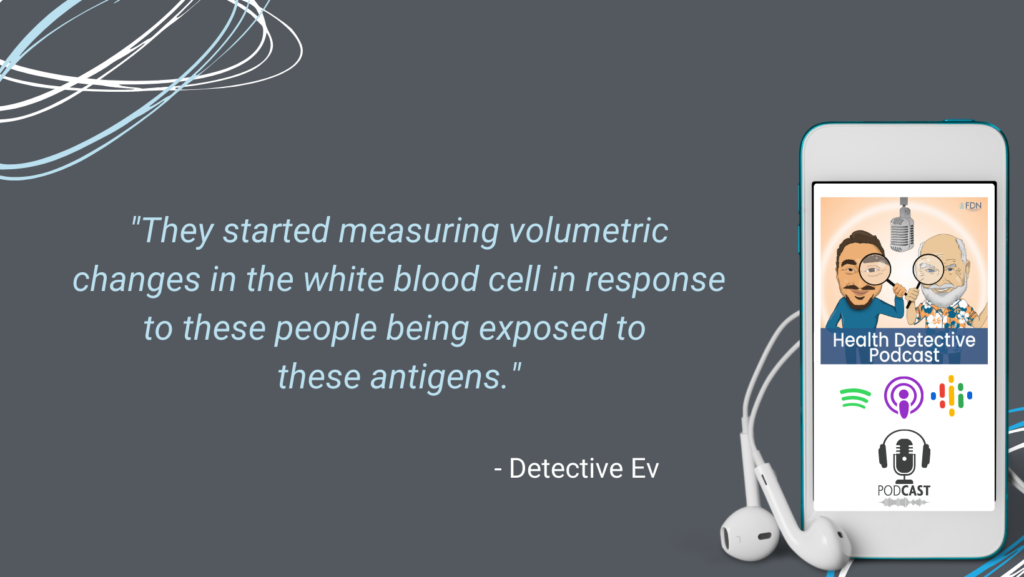
What they were able to do, and if you’re a nerd like myself, it’s just so brilliant to think about what they did here, they started measuring volumetric changes in the white blood cell in response to these people being exposed to these antigens.
MRT’s Data for Levels of Food Sensitivities
What this means is this, here’s a practical example. I have my blood taken from me. They are going to expose my white blood cell to, going back to that other example, avocado. What they’re going to tell is how much, in volume, that white blood cell changed when the avocado protein was given to it.
Now, if it’s just a minor amount over time, they’ve been able to realize, you know, that’s not really classified as a sensitivity. That probably means this person is pretty good. If it’s kind of in this middle range that they’ve discovered with their data, okay, you know what? There’s a good chance this is a mild sensitivity. Maybe if this person can avoid it, this isn’t something that they’d want to eat.
Then there’s the red. The red is like, whoa, okay. This is a real immunological reaction. Even if this person can’t immediately feel this or can’t even notice the symptoms from it, this is something that they definitely want to remove.

This test, this technology has been refined so much over time that they have a 93.6% replicability rate the last time I checked their findings. I’m sure this is only going to get more and more accurate as they run more and more tests. And 93.6% replicability rate is already fantastic in the world of food sensitivities. I always tell people, if other company or other technology is even willing to post the replicability rates of their tests, it’s not going to be 93.6%, that’s for sure. So, do me a favor, ask some of those labs that and see the answers that you get. It’s a bit scary. That’s why some food sensitivity tests are such a hit or miss for people.
MRT Food Sensitivities Test Helps Customize Clients’ Healing Journeys
With this, we’re able to indirectly test for the hundreds and thousands of ways that a person can respond to a food. Are we going to be able to tell, oh, hey, this is an IgG response, or this is IgE, or this is IgA.? No, we’re not gonna be able to tell that. That’s why I say indirectly.
But the bottom line is, do we really care about what type of response it is? Or do we care about this person actually responding to it, and the fact that we need to remove this temporarily, or maybe even permanently, depending on the food? Because this is currently a blockade in this person’s healing.
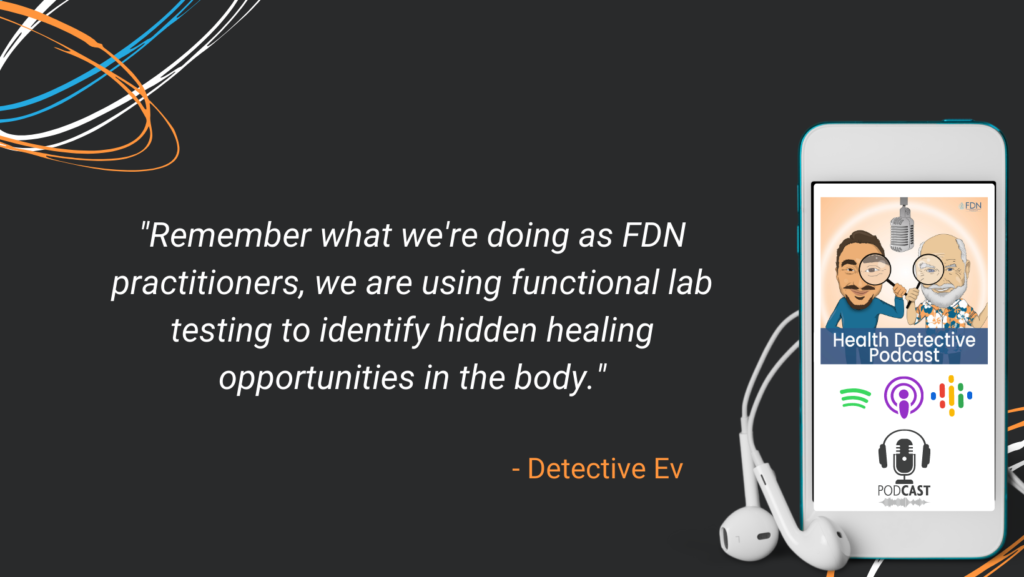
Remember what we’re doing as FDN practitioners, we are using functional lab testing to identify hidden healing opportunities in the body. We’re always focusing on the lifestyle stuff first and foremost. That’s why we have the D.R.E.S.S. protocol, which is diet, rest, exercise, stress reduction, supplementation. But then we use modern technology, such as these functional lab tests, to more or less customize the D.R.E.S.S. protocol for the client.
Leaky Gut = Food Sensitivities
In this case, a major way to reduce some stress on their body is to help them stop consuming the foods that are currently really pissing off their immune system. If you’ve got someone that’s chronically ill with you, an auto-immune patient, a cancer patient, whatever it might be, the last thing we want to be doing is adding a needless stress to their body by giving them a food that their body currently hates.
If they are sick like that, they’re going to have a leaky gut. When the gut’s leaky, when you have those kind of spread-out tight junctions, which is what is involved in leaky gut and intestinal permeability, when that food tries to get digested, it’s probably not going to digest properly as it is.
They have these epithelial cell layers wide open. The foods are going to go right on into the bloodstream. Of course, this is still happening at a microscopic level. I’m not suggesting that your entire hamburger is going into your bloodstream. But to the body, it’s a large chunk of food.

Now it goes into that bloodstream and your body interprets this as a foreign invader. This is something bad, something scary, something I need to get rid of. It attacks it in a very similar way to how it would attack the measles virus or chicken pox or whatever. That’s not good.
We don’t want that, especially if we’re consuming the food constantly and this ends up becoming the problem. If I get exposed to measles or the chicken pox, whether it was naturally or via vaccine, I’m not getting exposed to this all the time. That’s good. I get exposed to it; my body creates this immune response.
Constant Immune Response from Food Sensitivities
Now it also can even have memory cells that are going to basically be there on the front lines for me, if I ever get exposed to this again, but the exposure goes away. The body interprets the immune response as wow, this won. So, now we can tone it down. If you are sensitive to avocado and you’re on a keto diet eating avocado every single day or every other day, your body’s never getting a break.
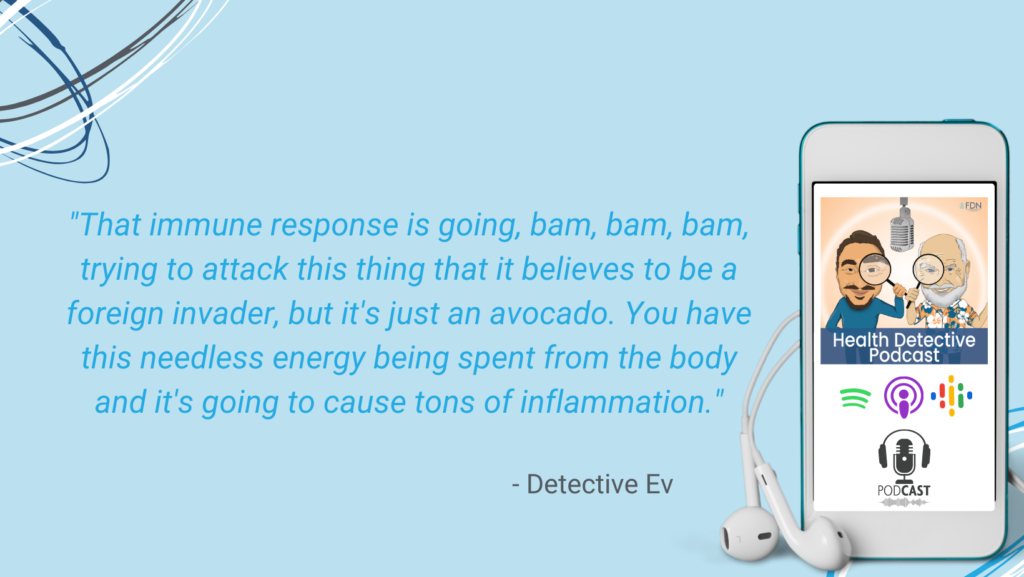
That immune response is going, bam, bam, bam, trying to attack this thing that it believes to be a foreign invader, but it’s just an avocado. You have this needless energy being spent from the body and it’s going to cause tons of inflammation. Don’t even get me started there, ’cause you don’t realize that you’re sensitive to this food.
Yes. That’s a big hindrance for a lot of people in their healing. Do I believe personally (I’m not speaking on behalf of FDN, I’m speaking personally now), that people can heal without food sensitivity testing? Generally speaking, probably. But why make your life that much harder? Why spend months, if not years of extra time, trying to get to the right place. When for a few hundred bucks (assuming that you’re working with the right practitioner, like an FDN practitioner), you can figure out, okay, how do I accelerate this? How do I not spend months or years realizing which foods are bad for me and slowing down my healing process?
Removing Food Sensitivities Foods Forever?
I don’t know about you, but I’m planning on dying one day and I’m not particularly familiar with when exactly that’s going to be. But I know it’s not that far from now in the grand scheme of things. So, the last thing I want to be doing is wasting extra time in my life, when I have technology to accelerate the going away of the bad things. I’m not going to waste a bunch of time having food sensitivities that I don’t know about when I could spend a few hundred dollars and figure out what exactly they are and then remove them accordingly.
Now, are you going to ever have to remove these foods forever? Probably not. That’s what’s amazing. When you know what the foods are and you temporarily remove them, you’re accelerating healing. You’re doing all the other million things we are trained to do as FDNs. And then you’re able to get a real hold of your health.
Then all of a sudden you might find, hey, I can kind of test out with this food. I could give a little bit here and see what happens. You might find that you don’t have that immune response anymore, or most commonly is that the gut has been sealed enough that those microscopic, yes, but still large for the body’s sense of it, those large food proteins aren’t getting into the bloodstream anymore in the same way. You’re not constantly pissing it off.
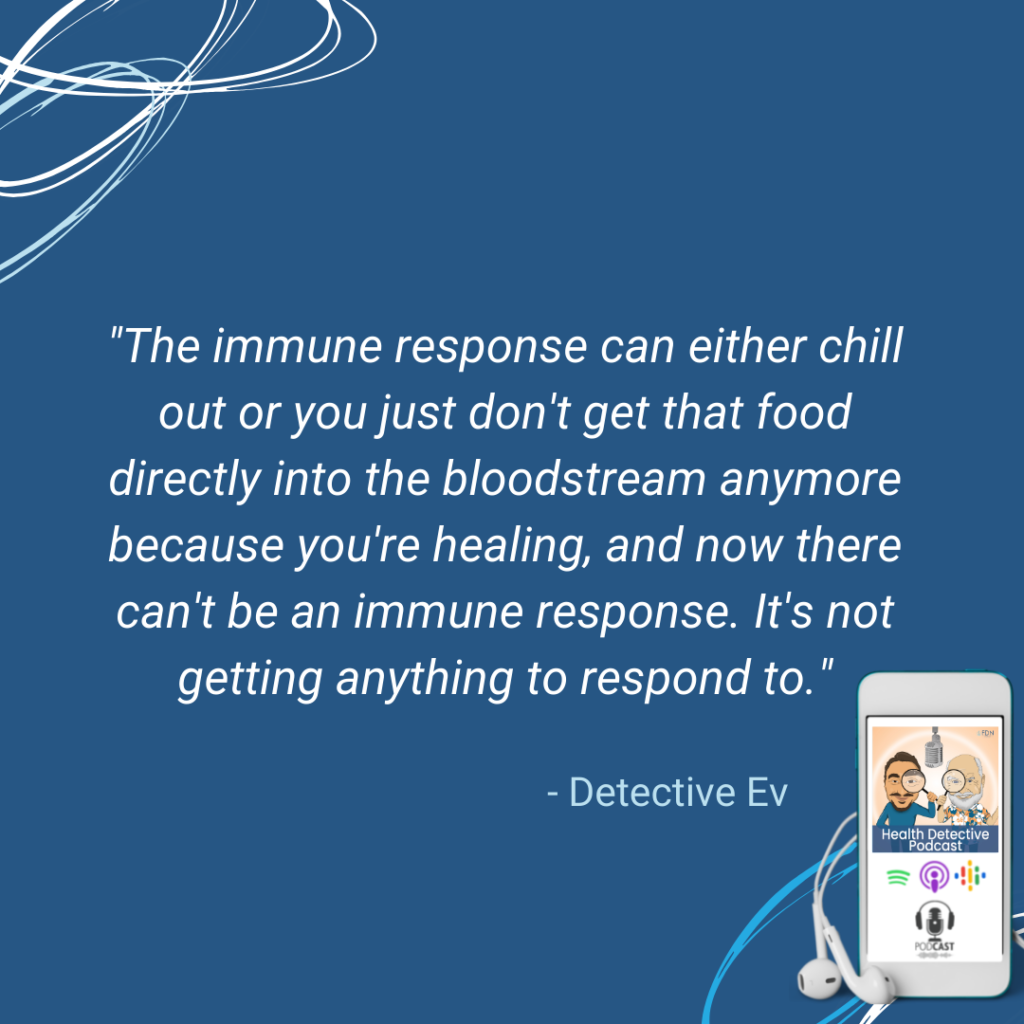
So, there’s really two ways that this can happen. The immune response can either chill out or you just don’t get that food directly into the bloodstream anymore because you’re healing, and now there can’t be an immune response. It’s not getting anything to respond to. All great stuff.
Some Have to See the Food Sensitivities Data to Abstain
Some of the times though, when we might want to remove these foods permanently is something like gluten, wheat, dairy (depending on which type of dairy, I guess). But most of these foods are not serving the people who are the sickest in our society, especially wheat.
We probably don’t want that anyway; you don’t need a food sensitivity test for that. Where you will need a food sensitivity test though, is when you have that client who really needs something if they’re going to stop eating bread, pasta, all of these things, cakes, cookies. They’re going to want to see it on the data.
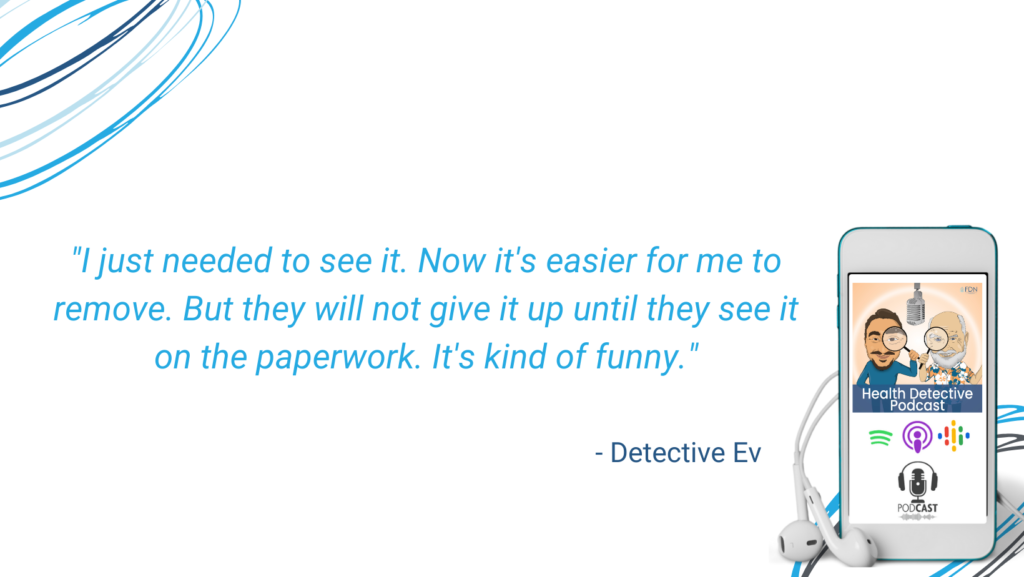
I cannot tell you how many people I’ve worked with when I was taking people more publicly, they’ll spend the $300 something dollars on this test just to have proof that they are sensitive to wheat. They’re like, you know, it was totally worth it. I just needed to see it. Now it’s easier for me to remove. But they will not give it up until they see it on the paperwork. It’s kind of funny, but I totally understand because I actually feel like I’m pretty similar in that way.
Testing Has Evolved and Improved
This has been an introduction to food sensitivities, as well as the tests that we prioritize in the FDN training, the MRT food sensitivity test by Oxford Biomedical Labs. And we also touched on the IgG stuff. Why that is still relevant and why it’s actually a pretty good choice if that’s the only thing we have access to. Which unfortunately is going to be the case for the vast majority of countries in this world.
As a company who certifies people in over 50 different countries right now, yeah, we sometimes need to use other things. That is totally, 100% okay. We always use the best that we have. For years FDN used stool culture testing, which basically just means the lab was taking your poop and they would see what grows on that stuff.

[00:19:32] Detective Ev: Well, that was not a particularly good form of testing. Because 95% of the fun little critters that are in our bodies, once they’re exposed to oxygen, they’re going to die. And that stool culture test could not pick it up. Was it still better than nothing when we’re talking about the most ill in our society that have not had anything else work for them, and that’s why they are working with us? Of course, that’s great.
Access to Labs Like the MRT Food Sensitivities Test
Now we’ve been able to upgrade that technology. Now we have the PCR DNA stuff. Wonderful, if you have the right practitioner. Probably a little, not so useful, if you have the wrong practitioner. But with the right one, it’s pretty good stuff. I’m not trying to confuse you by adding in the stool test today.
I’m just saying that we do have progressions in the technology over time. So, it’s totally okay to use the best of what you have as long as you are a practitioner who is actually trained to know the limitations of that test and understand what the results mean and how to properly interpret those.
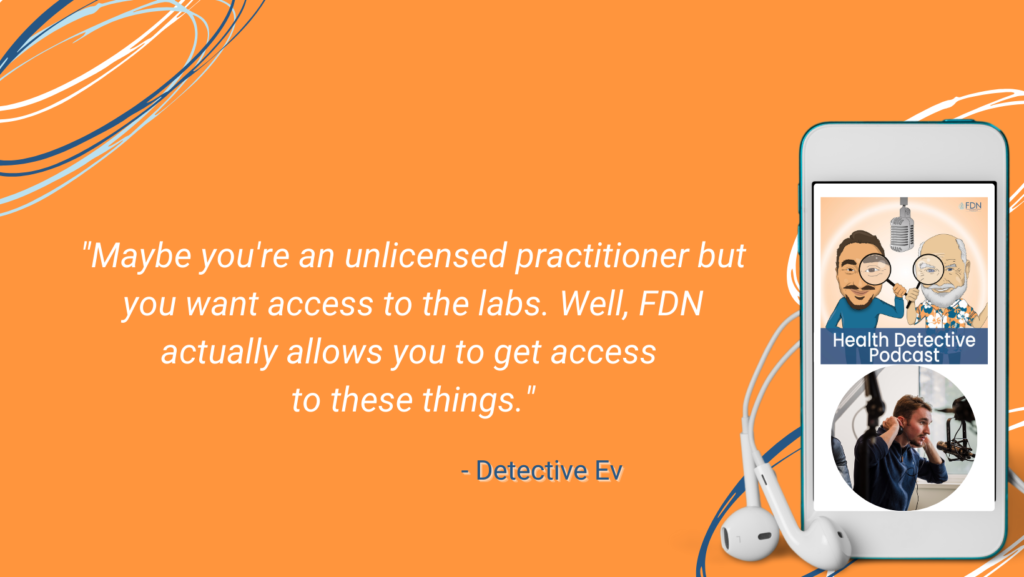
That’s what we will teach you how to do in the FDN training program as well as much more. So, if you’re interested in this, if you’re interested in getting access to these tests, because maybe you’re like myself. Maybe you’re an unlicensed practitioner but you want access to the labs. Well, FDN actually allows you to get access to these things.
It’s not an illegal thing. It’s actually totally by the books. How we do this is through our medical director program. So, the FDN training is not like most other online certifications out there. This isn’t just, you know, show up once a week and you get a pretty little piece of paperwork. This is stuff you’re actually tested on. You will be tested verbally and via multiple calls and web conferences with our mentors from FDN. You do have mentors while you’re going through the course and they are going to make sure that you know this stuff.
How Access to the Labs Works
Now, is that a little tougher than most online courses? Certainly. But you also get more upside. Because we’re testing you and making sure you actually know the information that we’re teaching you in the course, the upside of this is that when you graduate, you have a team of doctors that trust you enough that they are now going to facilitate lab orders for you. And that doesn’t mean you’re running a lab on any client. That’s not how this works.
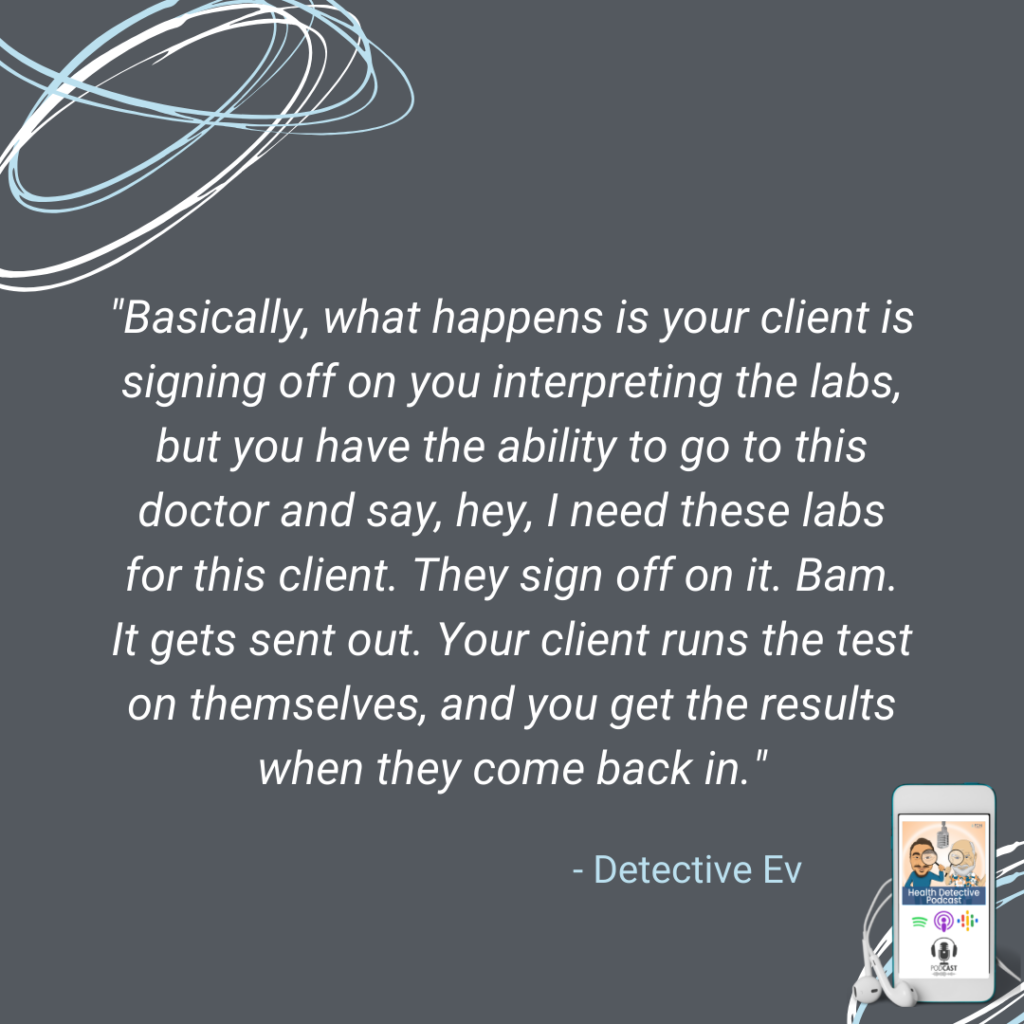
Basically, what happens is your client is signing off on you interpreting the labs, but you have the ability to go to this doctor and say, hey, I need these labs for this client. They sign off on it. Bam. It gets sent out. Your client runs the test on themselves, and you get the results when they come back in. And now you’re having consultations with your clients. Brilliant, right? Totally cool.
So, if you’re interested in that, go to functionaldiagnosticnutrition.com and you can check out a bunch of stuff on the website. There’s tons of information there. But if you’re just someone like me, that’s short, sweet, to the point, I just want to know the details that I want to know. I want my questions answered fast. You actually can book a call with one of our course advisors. It’s a button at the top of the screen. It will say “book a call” right at the top.
Talk With an Advisor that Resonates with You
We have multiple different course enrollment advisors. Now they’re not salesy people, which is really great. I love being able to talk to them for that reason. They’re not really like that. They are people like you and I who went through the FDN program and are super passionate about this.
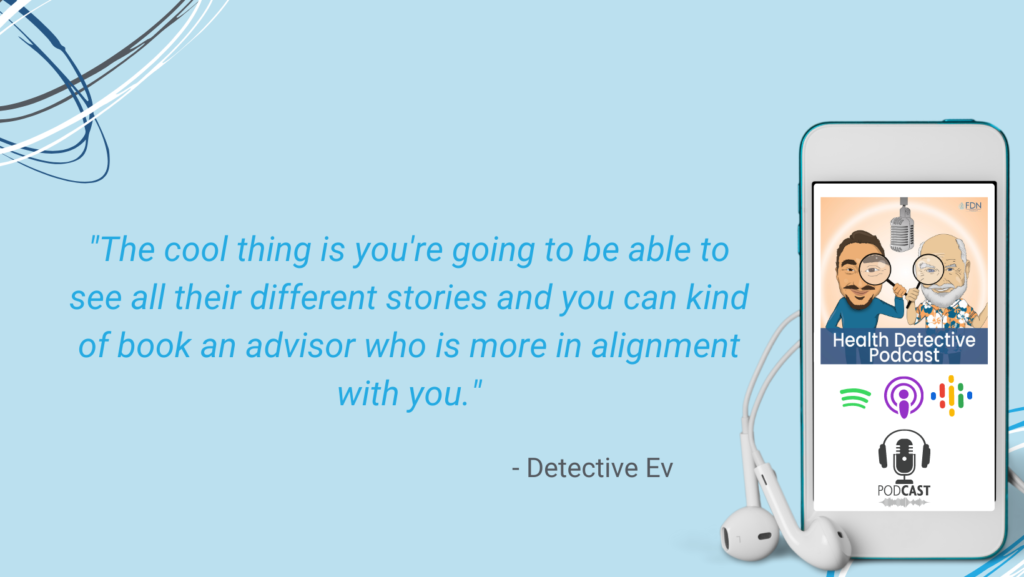
They choose to be someone who actually wants to talk about this kind of stuff now. Most of them have their own practices, which is really amazing. They actually do FDN outside of this, and then they also are just passionate about what we’re doing here. So, they help the company in that way. The cool thing is you’re going to be able to see all their different stories and you can kind of book an advisor who is more in alignment with you.
Maybe you find that, hey, you know, I kind of had an osteoporosis thing, maybe some eating disorder stuff, well then, our course enrollment advisor, Barbara, she’s someone who shares this on the podcast. Really love her vulnerability. She might be the person for you.
Maybe it’s a completely different condition and one of the other enrollment advisors will resonate with you a little more. It doesn’t matter. You have a bunch of people to choose from, and they’re really all great individuals. So, if you’re interested in the course, just give us a call.
Conclusion
Then if it’s not for you, that’s okay. We’re very honest about that. Yes, we would love to believe everyone in the world should be an FDN practitioner, but the truth is that’s just not the reality of it. Sometimes people need a different course, a different program, and we’re happy to recommend you to those things, if, and when that’s necessary.
So, I’m looking forward to talking to you guys again soon. I will be back in just a few days here. If you don’t know, we release every Monday and Thursday, early in the Eastern Standard Time. We’re actually like 3:00, 4:00 AM. so people have it for the day. By the time you wake up on Monday or Thursday, if you’re in the USA, Canada, or even remotely close to there, you will probably already have your episode out.
But on Thursday we’re actually bringing someone back on the podcast. She has not been on since before episode 10. So, I’ll give you a hint. She is a really, really big role in the world of Functional Diagnostic Nutrition. We’ll be talking to her about hormones and much more, but until then take care. I will talk to you guys on Thursday.

